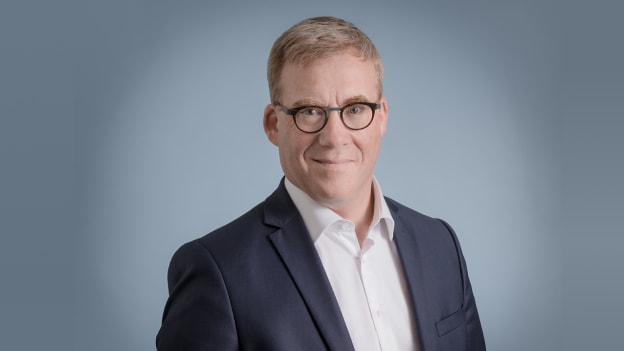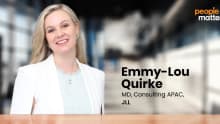The world needs more engineers: here’s what Thales is doing

Thales is a firm whose products affect every household, but it’s not a household name. One of the world’s largest defense contractors and a major manufacturer of electrical systems, the French multinational operates in 68 countries and has over 81,000 employees. And it’s out to hire even more. In 2022, Thales hired over 12,000 people worldwide, and the firm is targeting to recruit at least that number again this year, says Clement de Villepin, Senior Executive Vice President of Human Resources.
In an exclusive conversation with de Villepin during his recent visit to Singapore, People Matters heard from him about Thales’ talent strategies and the hiring outlook for the engineering and technology industry.
This interview was originally published in the February 2023 edition of People Matters Digital Magazine.
What is the talent acquisition outlook in the region currently?
Here in Asia, the candidate to job ratio is around one for two, meaning that for one graduate you have two open positions. It is not too bad compared to other parts of the world, but it is still a challenge. The market for high tech and deep tech is developing very quickly, and the supply of talent is slower compared to the demand. And so that obliges us to have a very professional talent acquisition process.
Our value chain of talent acquisition has four main areas. The first one is attractiveness. The second one is sourcing, the third one is assessment, and the last one is onboarding. All of them are critical, and we have set up a dedicated organisation to cover those four steps.
And I would say that here in Asia, our most important challenge is probably to make our brand more visible. Even though we are a historical player in the region, this is our 50th anniversary of Thales’ presence in Singapore, we are still not very well known. One reason is that we are not a B2C business. Even though the technology in your credit card or your iPhone may have been produced by Thales, even though our product offerings are very large, most of our candidates don’t know about our portfolio.
In terms of culture, we are probably a bit shy. We are an engineering company. We are passionate about technique and the technical aspect, and to promote ourselves is maybe not in our DNA. So it’s probably on us to speak a bit louder, and that’s something we are working on.
Can you tell us more about your talent acquisition process?
We have a dedicated sourcing team which is focusing on locking in a pipeline of candidates. We are also investing in technology to access the highest number of candidates that we can, and we are also taking advantage of this sourcing approach to get a diverse profile. In Asia we are working with 33 nationalities, which is a specificity of the region which is important to us. We are convinced that we learn from the differences.
Having people with different backgrounds is offering a good environment to innovate.
We are also focusing on developing gender diversity within our business, which is not easy. Just look at engineering schools, where we still have more males than females. We are connected with universities and schools all over the world to see how we can encourage women to become engineers, and I think that in Asia we are seeing good progress.
Next is assessment and this is very important to us. We want to set up a fair assessment for our people, so most of the time, we are asking our candidates to do technical tests. They may not necessarily be engineers, but if they have learned by themselves or by experience, they are able to demonstrate that they are technically skilled enough to enter the company.
And of course, we check that there is a cultural fit between the candidate and the company. To us, the soft part is as important as the technical part.
In creating your candidate pipeline, do you also go to the schools to build a next generation of engineers?
We are very convinced that we need more engineers to address some of the social challenges the world is facing. So it's part of our social investment that we visit the schools to motivate young pupils to become engineers. We have been modeling that in Europe, and what we observed is that to speak to a teenager when they are 16 is probably too late, because the mind is most of the time already made up, and it is even more true for women. So we start even earlier.
In Europe, we have 600 engineers who are visiting schools on almost a monthly basis. They speak with children that are eight to 10 years old, and they speak about the experience of being an engineer. And we started that around 15 years ago, and now we have some people entering the company and saying “10 years ago an engineer came in and I became interested”.
So it works. But it is a very long term investment.
Thales has a very large portfolio. How do you manage internal mobility between the different fields?
We have three channels that we work on very actively. The first channel is that at least once a year, every employee has a development interview, where they can discuss with their manager about career expectations. The HR function is recording and looking at those interviews.
The second channel is that we are posting ad hoc job offers, locally and also internationally. And we have many, many people moving internally.
The third channel is a tool more specific to the HR function. It's a very structured process of talent review. Every year we have a collective discussion around employee preparing, development planning and succession planning. A manager can say, “I will need a HR person in this country” and I, knowing my HR community, will be able to put a suitable person in place. Also as HR, we are meeting people very regularly and learning about them, and we can identify if a person may be able to do a certain job.
Does this mean that the HR team is working very closely with the managers?
Yes. To me, one of our most important roles is really to support the manager. I always insist on that. To be a manager is to manage your people and to develop them. But it is not always an easy role. You need to have support, and as HR our role is really to support the manager: in succession planning, in recruiting, in developing people, in managing difficult situations, in being sure that a team is working together. Sometimes it's important for a manager to have a counterpart, to have open discussions to see how we can manage human situations.
When we are able to establish this level of relationship, I think that as a function, we are really able to deliver value for the business. Which means I am quite demanding that our HR people need to understand the business.
When you're an HR person, if you want to support a manager, you need to understand the product, you need to know about the customers, you need to know the challenges.
How about Thales’ retention strategies, what is your approach for keeping people with the company?
That's a key question for us. I feel that we are able to keep our people in the long term, but we have revamped our employee value proposition last year to make it more explicit, and also engaged our management to make it happen. This is an EVP based on three pillars. The first is about being passionate about technology. When you join Thales, you're able to work with worldwide experts, and when you are a young engineer it is very important to have the opportunity to work and to learn with these people.
The second pillar is about global well-being and the well-being of people. Respect for people is part of the DNA of Thales, because our business activities impact citizens. I am always positive and happy to hear engineers explaining to me spontaneously about the impact of what they are doing on the next generation. This idea of having an impact on society is really important to us.
For the well-being of people, work-life balance is another really important thing. Even before Covid we have worked a lot on smart working. We are offering hybrid work, meaning that people can have two days of home office per week or even three. But we do consider that physical presence is also important, I would say not every day but at least every week as our job is about working together. An engineer alone can be very innovative, very clever, but you cannot work without collaboration. So we need to motivate people to come to the office and offer them a good working condition in order for them to be happy in the office.
The third pillar is about offering a long term perspective. Our huge portfolio means you can work on space, developing satellites, you can work on digital security, developing chips for smartphones, or developing banking technology, you can work in defense, you can cover many technologies and many different activities. And it is in our interest to also make multiple activities available to our employees, because every time they learn new technologies, they become more expert, richer in their knowledge.
I just want to highlight the fact that here in Asia, we have a quite unique representation of portfolio activity. We have a research centre, we have a digital factory, we are doing digital security, we are also doing defense. We are really able to offer a huge diversity of experience for people who are passionate about technology.
And I want to say that we are lucky enough that retrenchment is not a topic for us. We have plenty of things for engineers to do.














